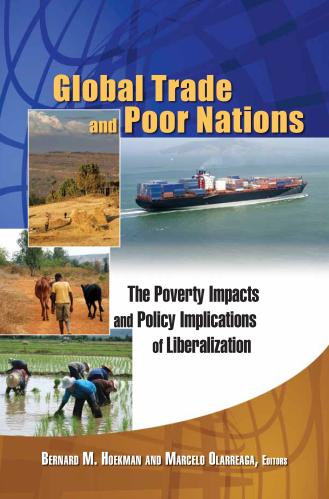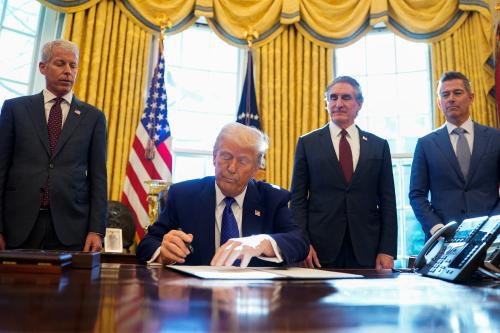The Metropolitan Policy Program at Brookings proposes the creation of a Regional Export Accelerator Challenge (REACH) grant program to support the development and start-up implementation of metro export plans. This new, temporary competitive grant program will operate most effectively alongside a reauthorized STEP or a similar program dedicated to increasing state capacity in the trade system. See also Amy Liu’s related op-ed, Don’t Ease Up on Exports (from TheHill.com).
To increase U.S. exports—particularly by the small and mid-size companies that drive domestic job creation—the federal government should initiate a short-term competitive Regional Export Accelerator Challenge (REACH) grant program to support public-private partnerships working to launch customized regional export plans. Metropolitan export strategies address a major need in the current export support system by leveraging the knowledge and connections of local economic development leaders to proactively identify firms and sectors with greatest export potential, coordinate fragmented export assistance providers, and focus limited resources for maximum benefit. This outreach to new and under-exporters is a necessary component of any broader effort to reorganize or restructure the federal trade system. By making a small investment at the metro level, the federal government can empower a network of regional leaders, working in conjunction with their states, to bring the benefits of global engagement to firms and workers in many regions of the United States. The REACH program would be a modest $25 million grant program executed over three grant-making cycles. As Congress and the Obama administration work together to put the United States on a sound fiscal and economic course, they must also ensure that the nation remains a strong force in the global marketplace
Background
New global dynamics, including the emergence of new markets, the rise of the global middle class, expansion of global supply chains, and increased international connectivity, present tangible opportunities for U.S. economic growth through exports and trade. The importance of trade in the global economy will only deepen as world markets become more integrated. The level of global trade between countries has tripled since 1950, and more recently, grew from $15.5 trillion in 2009 to nearly $18 trillion by 2011.
Boosting U.S. exports would directly benefit firms, workers, and the national economy overall. The small and medium-sized enterprises (SMEs) that export generally experience greater revenue growth than non-exporters and weathered the recession better than non-exporters. One study found that SME manufacturing exporters grew revenues between 2005 and 2009 by 37 percent while non-exporting manufacturers experienced a 7 percent decline in revenues during the same time period.
In addition, suppliers to exporting firms benefit from trade as well. Research shows that on average, U.S.-based multinational firms purchase $3 billion in goods and services from 6,000 small businesses each year. One net result: the production of exported goods and services preserves and creates jobs, both directly and indirectly in the supply chain, on the order of 5,400 jobs for every $1 billion in additional goods exports. Furthermore, export sector jobs pay well, with workers earning 10 to 20 percent higher wages than those in comparable non-exporting jobs for every $10 billion in sales in a metropolitan export industry.
Recognizing this global moment, government, business, and civic leaders in states and metro areas across the country are adapting their job creation and economic growth strategies to take advantage of the benefits of global trade.
The Brookings Institution is committed to quality, independence, and impact.
We are supported by a diverse array of funders. In line with our values and policies, each Brookings publication represents the sole views of its author(s).













